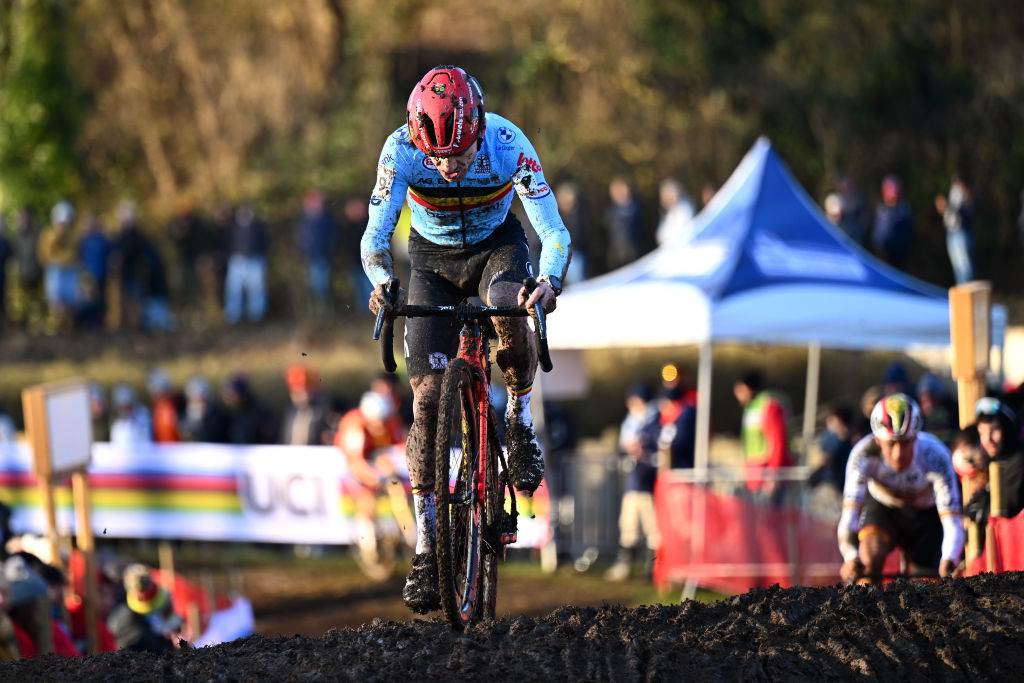Vuelta a Espana 2020: A very different race - Preview
The Spanish Grand Tour sets off amid rising coronavirus cases across Europe
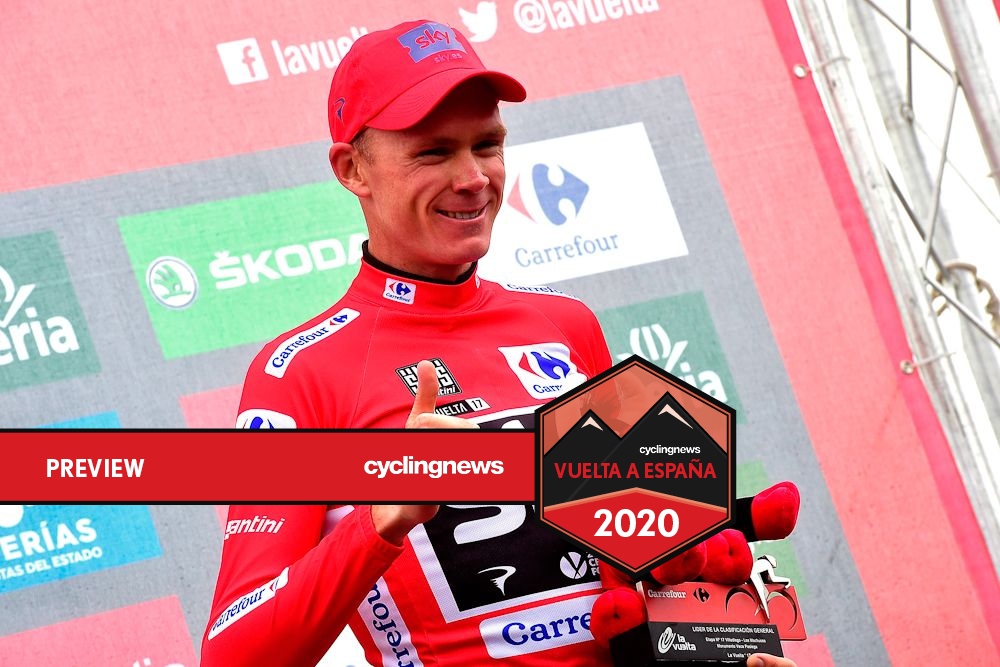
A very different 2020 Vuelta a España kicks off next Tuesday amid deep concerns over the soaring numbers of COVID-19 cases in Spain and across Europe, with a shortened 18-day format, and - perhaps the only really familiar element - a route that will likely see an out-and-out climber atop of the final podium.
Since the Slovenian national road race in mid-June, the first event to be held in post-lockdown Europe, the current pandemic and measures against it have inevitably formed part of the furniture of every bike race. But the fast-rising second wave of infections of COVID-19 across Europe, coupled with recent events in the Giro d’Italia, will further heighten the focus on this question in the last Grand Tour to be held in the rescheduled 2020 season.
The circumstances in Spain are increasingly challenging, not least because even compared to when the Giro started two and a half weeks ago, the situation regarding the pandemic worldwide continues to worsen. On top of that, Spain is at the forefront of Europe’s second wave, with Friday’s total of 15,196 new cases the highest daily total since the pandemic began. Spain’s Health Minister Salvador Illa recently described the situation as “worrying, unstable and fragile.” Earlier this week Fernándo Simon, the country’s top health emergency official, bluntly stated “there is not one territory where we have the rate [of infection] that we’d like to have.”
Several cities and parts of the country on the 2020 Vuelta route are in some form of lockdown or close to applying it. They include the region of Navarre, which has the highest levels of contagion of any region in Spain, and the start and finish cities of Salamanca and Ourense. The highest profile situation is in the very last stage finish of the entire race in Madrid, although cases appear to be dropping in the Spanish capital over the last few days.
Some measures to reduce the potential health risks by cutting down on cross-border or transfer problems were put in place well in advance. The removal of the three stages in the Netherlands and the re-location of two days in Portugal, in the third week, back onto Spanish soil were announced in the summer. The Vuelta’s lone incursion into foreign terrain comes early, on stage 6, into France when it finishes atop of the Tourmalet.
More recently it was confirmed that hefty series of 2020-specific health regulations, based on race owner ASO’s measures for the Tour de France, will be applied. Obligatory pre-race COVID-19 testing for all members of the race community, not just the team ‘bubbles’ is already underway. The publicity caravan and sponsors’ village have been removed, all summit finishes and some other emblematic climbs will be off limits to the public, access to riders in the races have been severely restricted and the Junior Vuelta a España, which usually runs parallel to the senior event, has been postponed to 2021.
A TV and radio campaign has also been launched to try and maintain spectator numbers as low as possible and encourage people to stay away. As was the case in the Giro and the Tour, the entire teams’ zone will be sealed off. A 26-page health protocol document, based on a raft of measures approved by the UCI, Spanish health authorities and the Spanish Cycling Federation, which also seeks to improve the health conditions applied in the Tour, has also been circulated. Whether all this will prove to be sufficient to guarantee an incident-free race remains to be seen but the only realistic evaluation of their effectiveness will be once the Vuelta is underway.
The latest race content, interviews, features, reviews and expert buying guides, direct to your inbox!
An exceptionally hard course
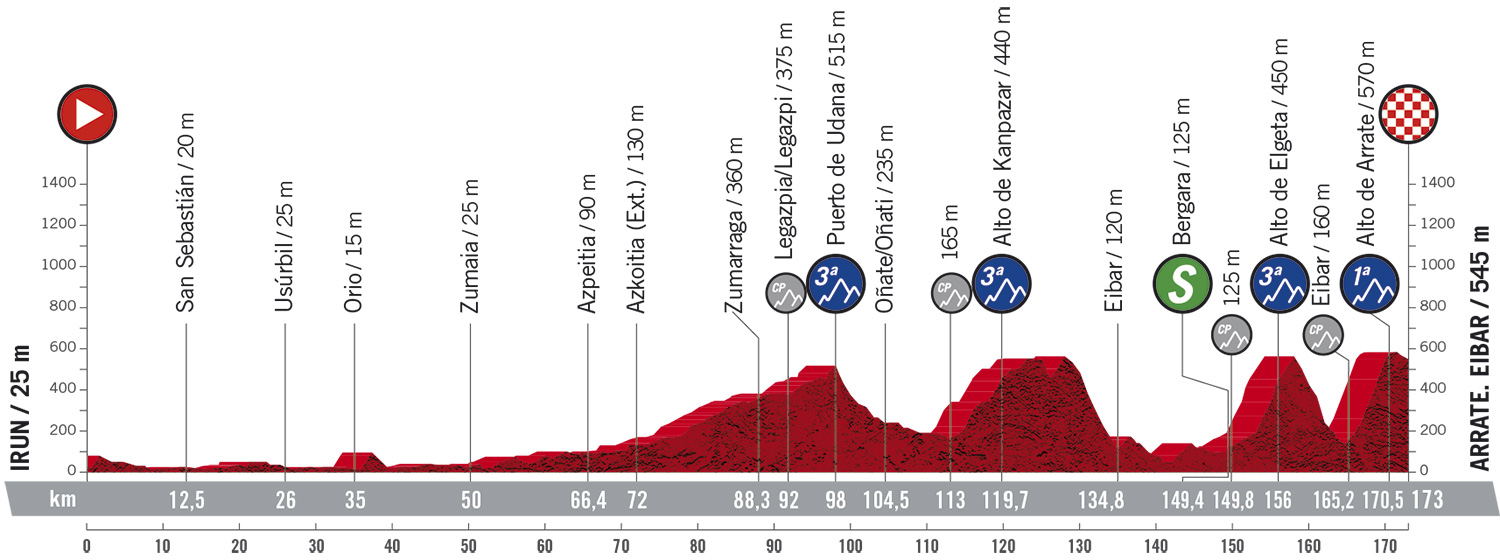



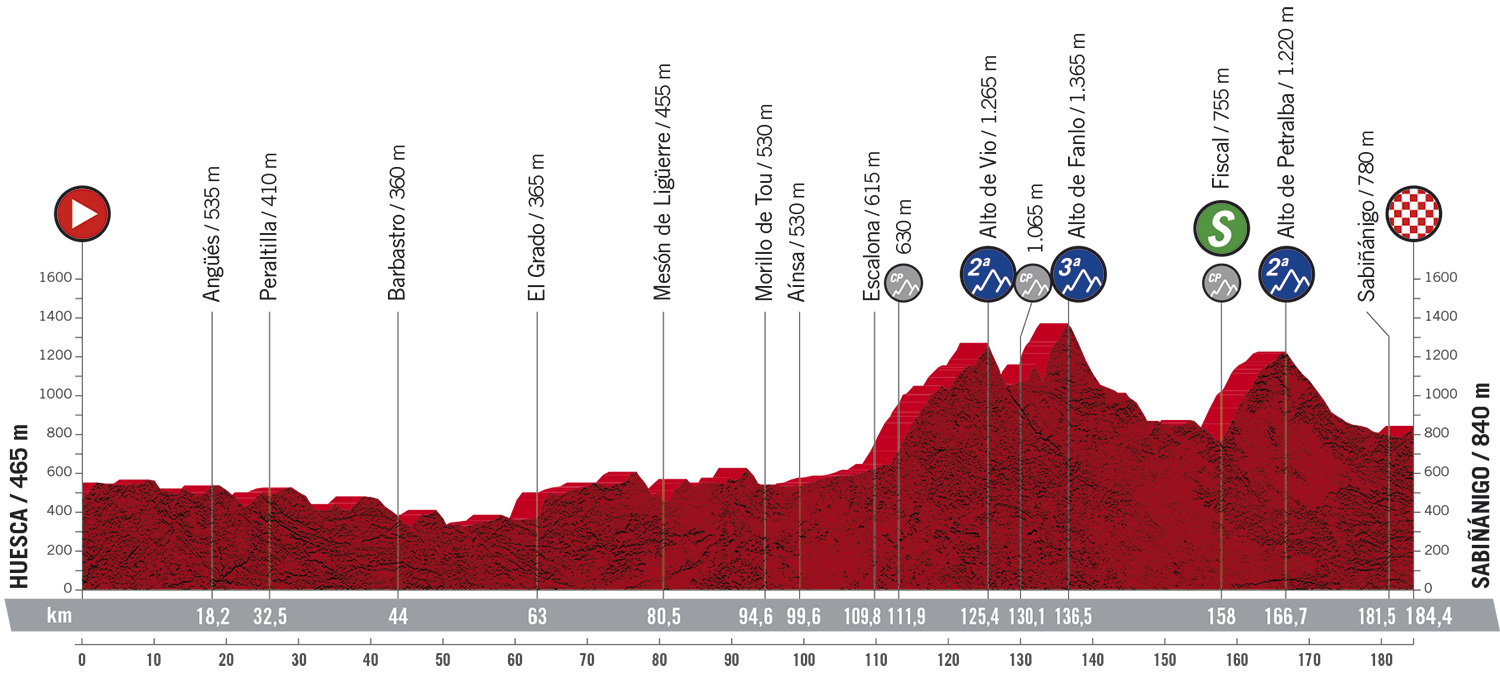
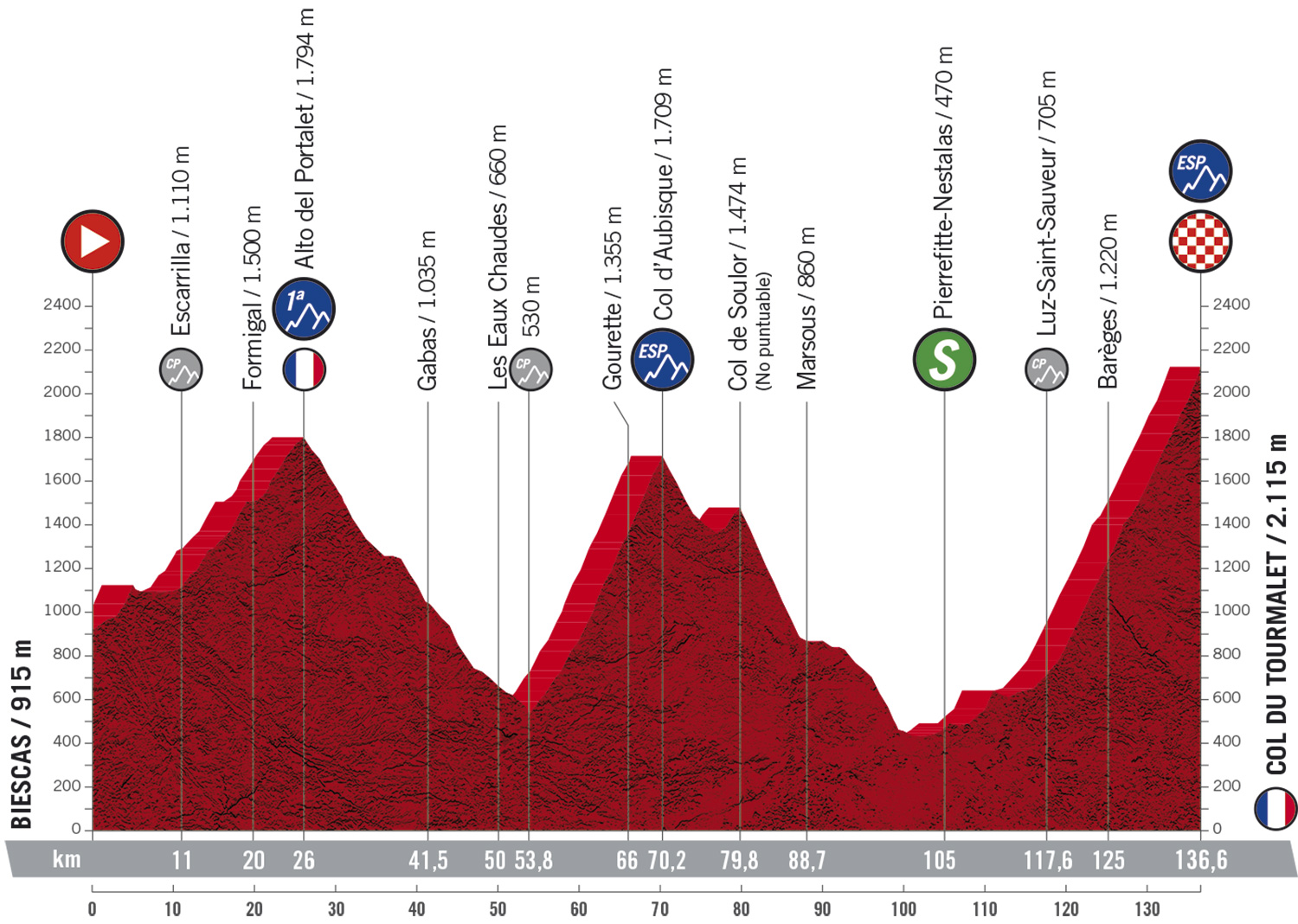
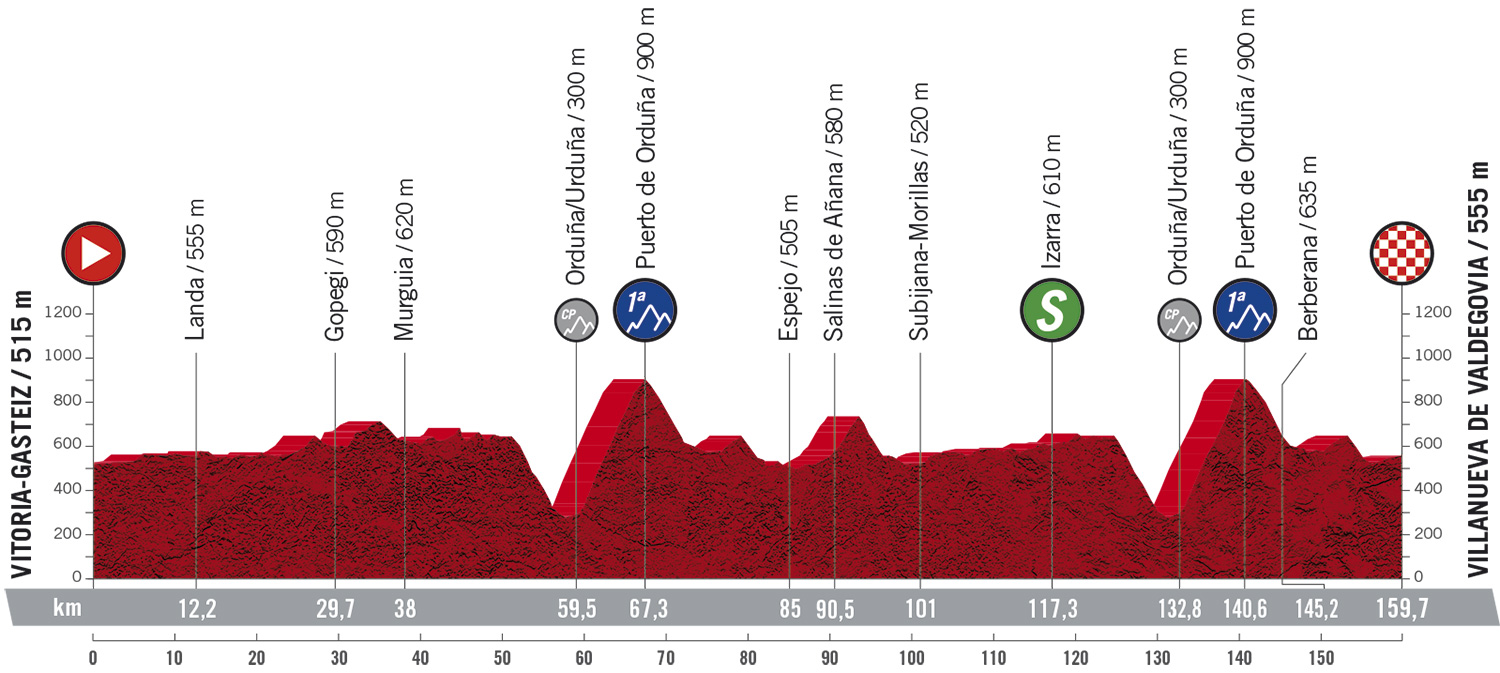
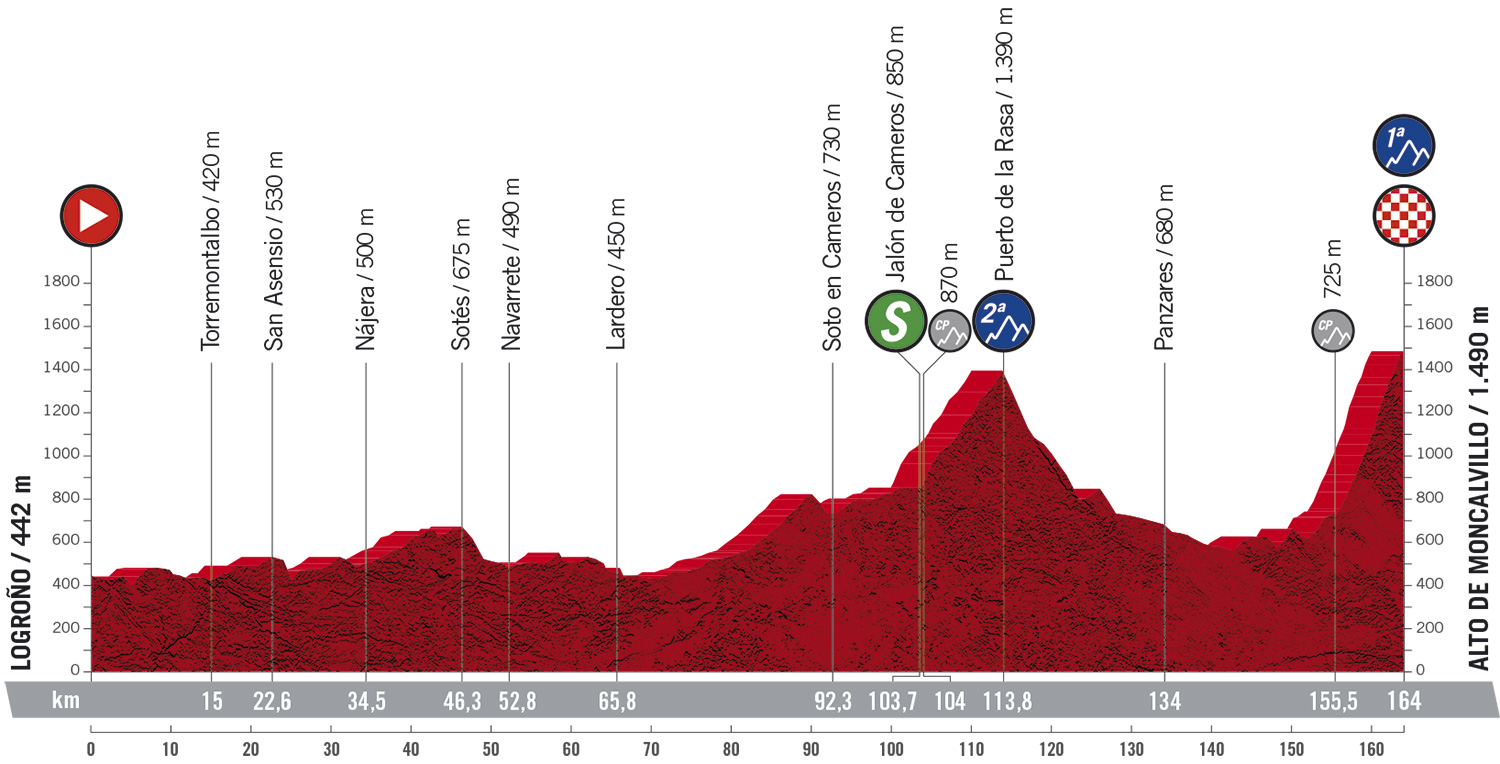
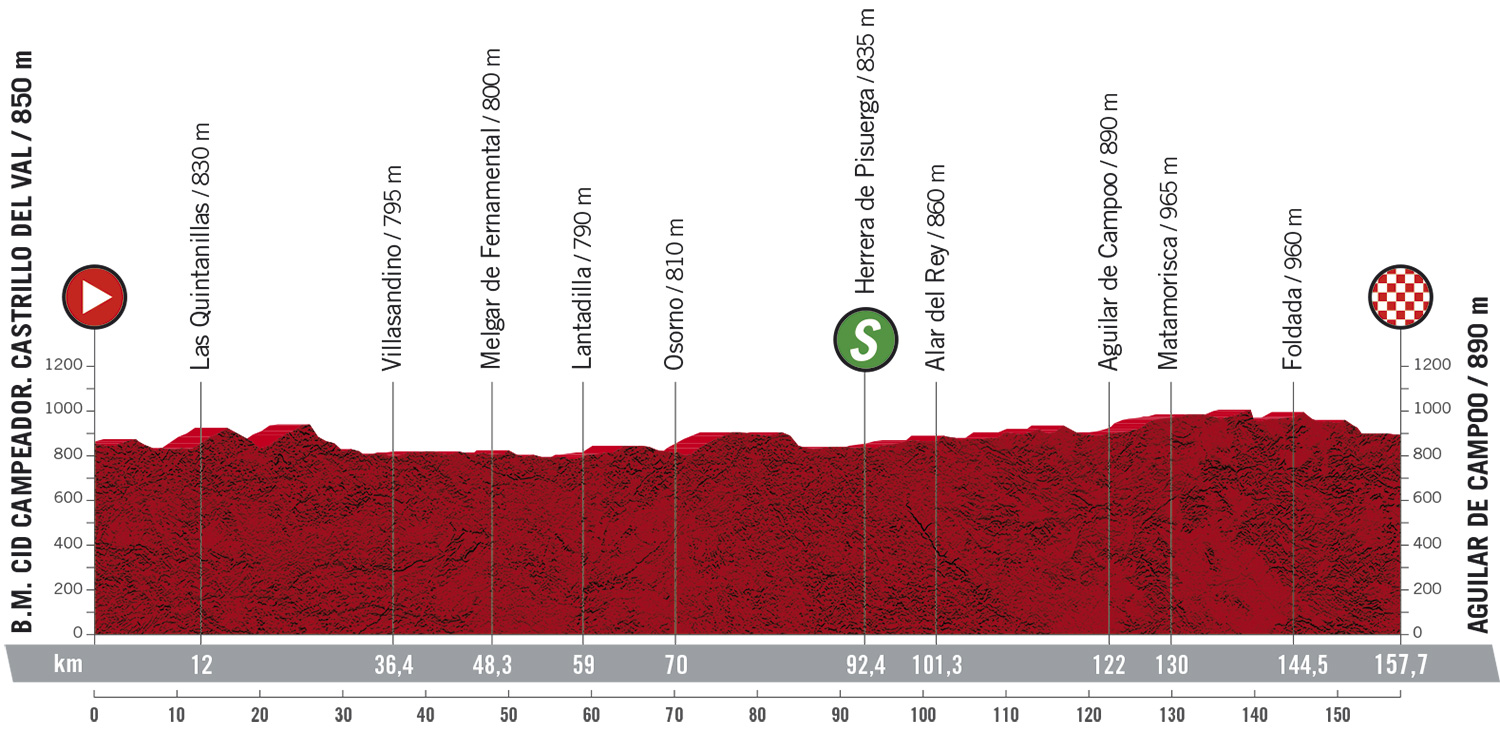
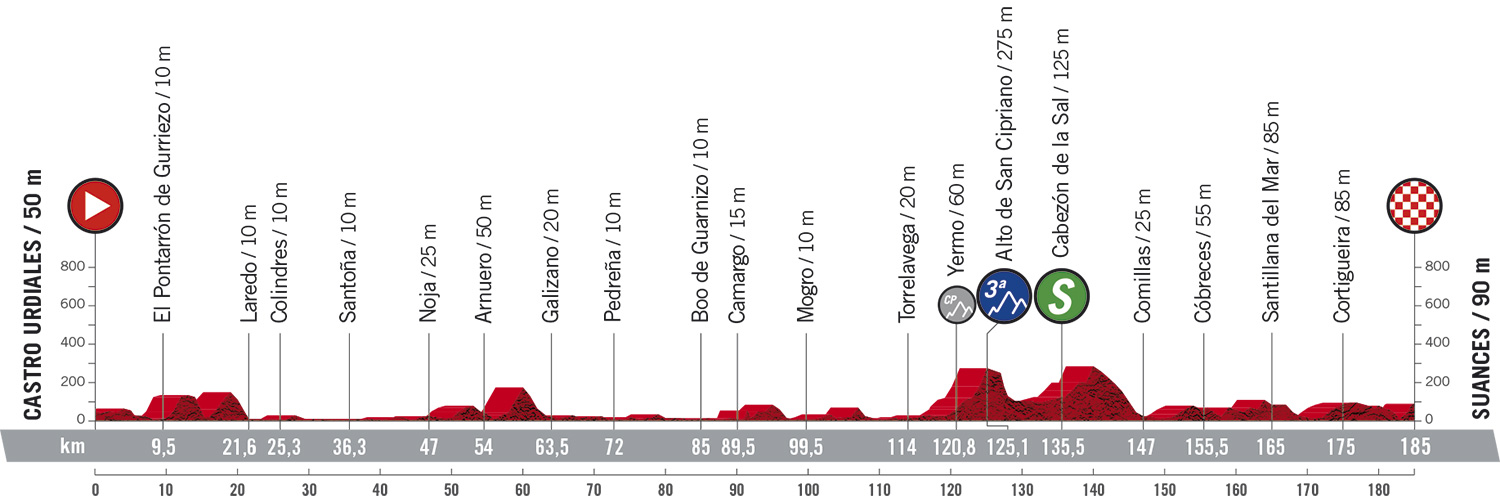

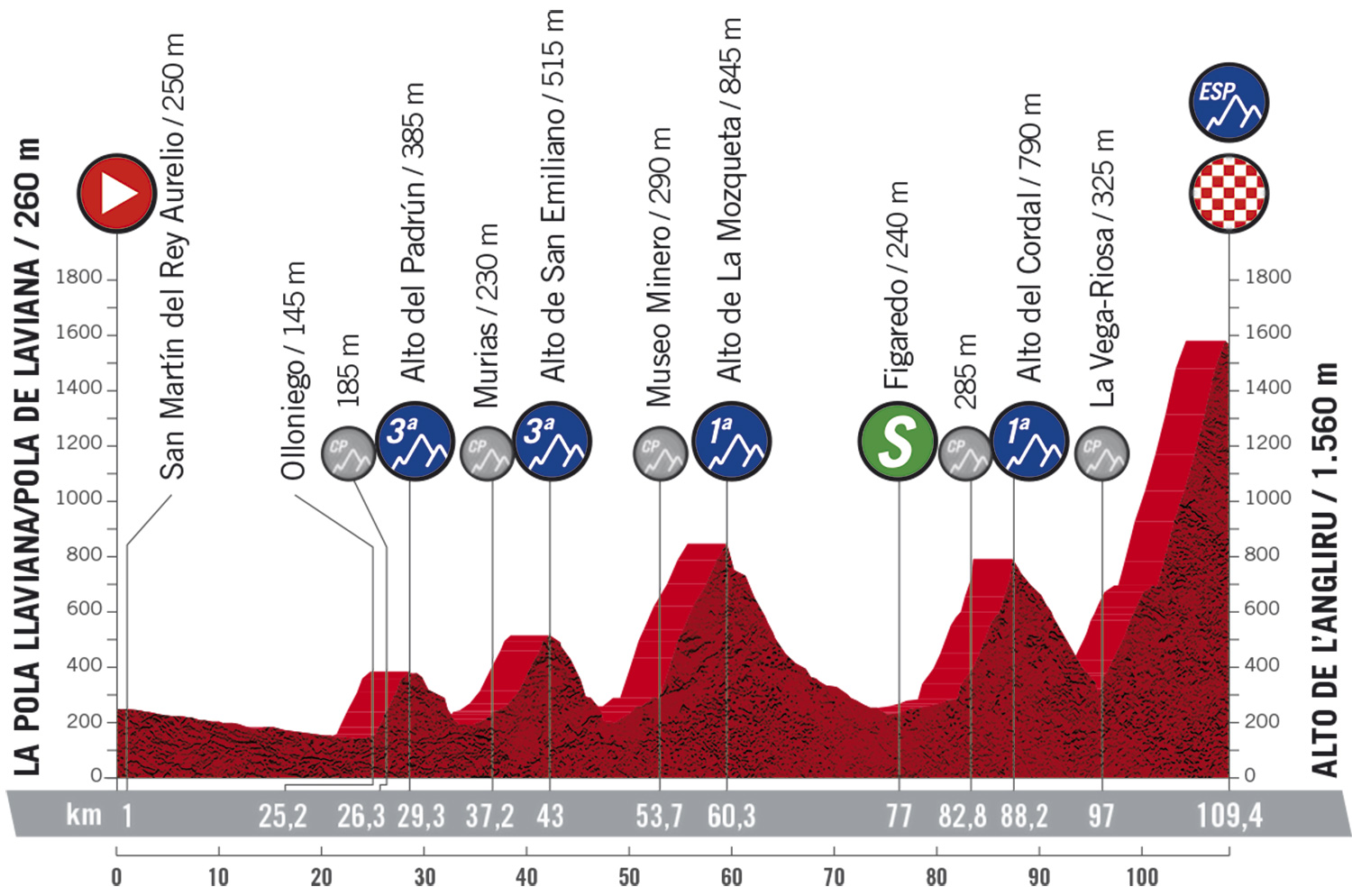
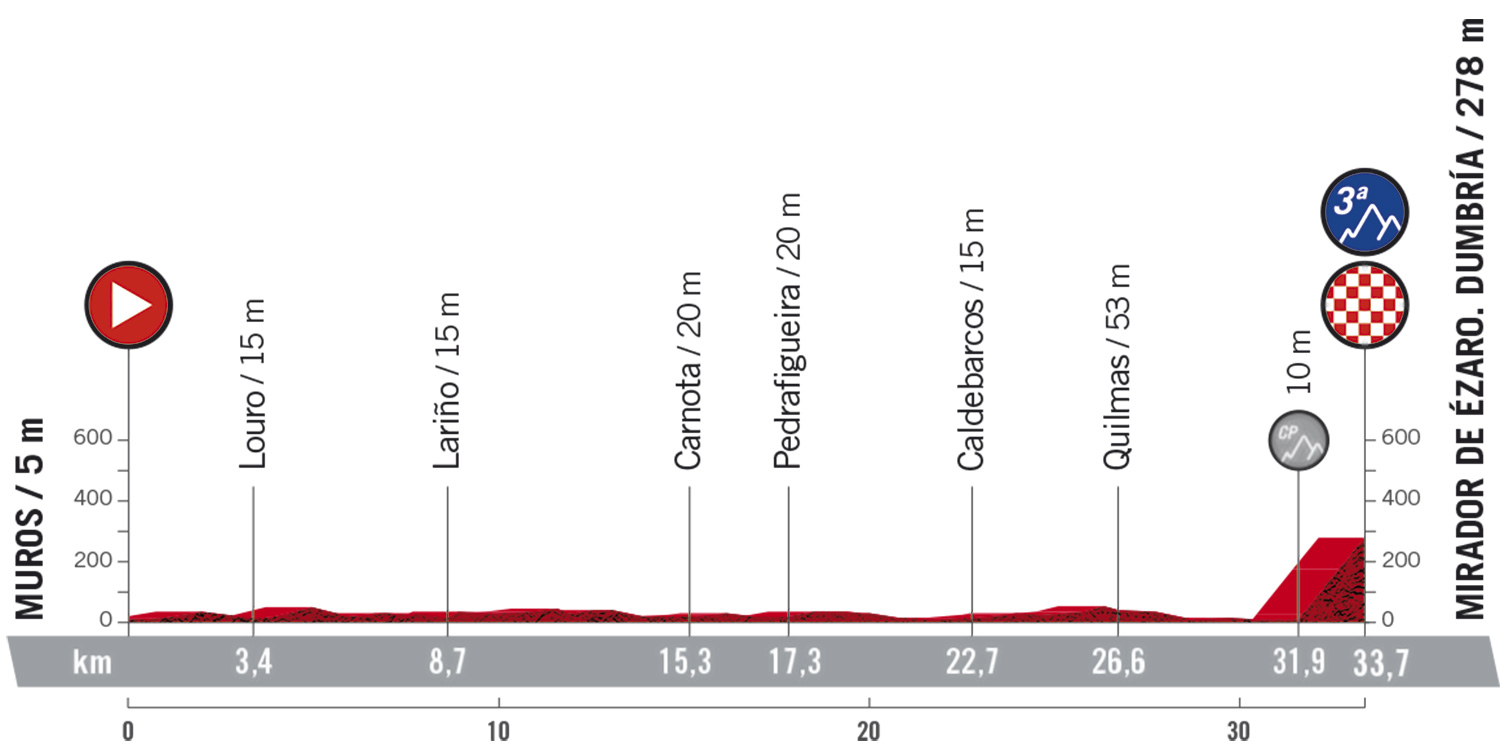
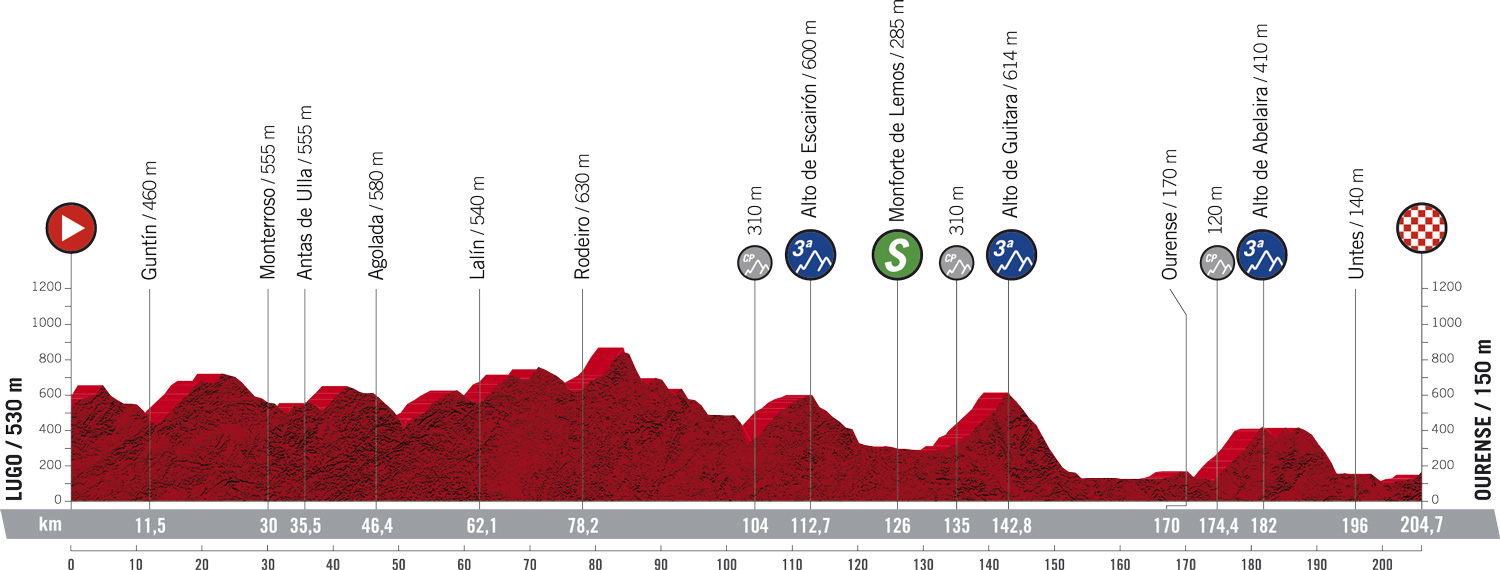
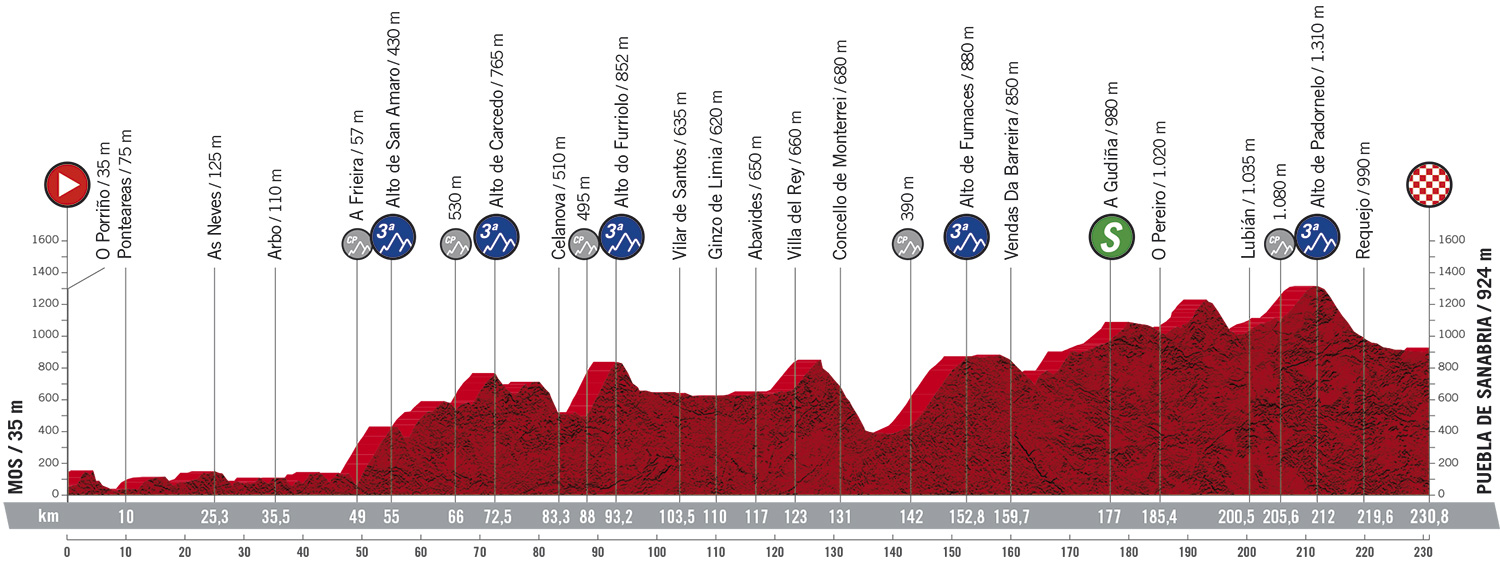
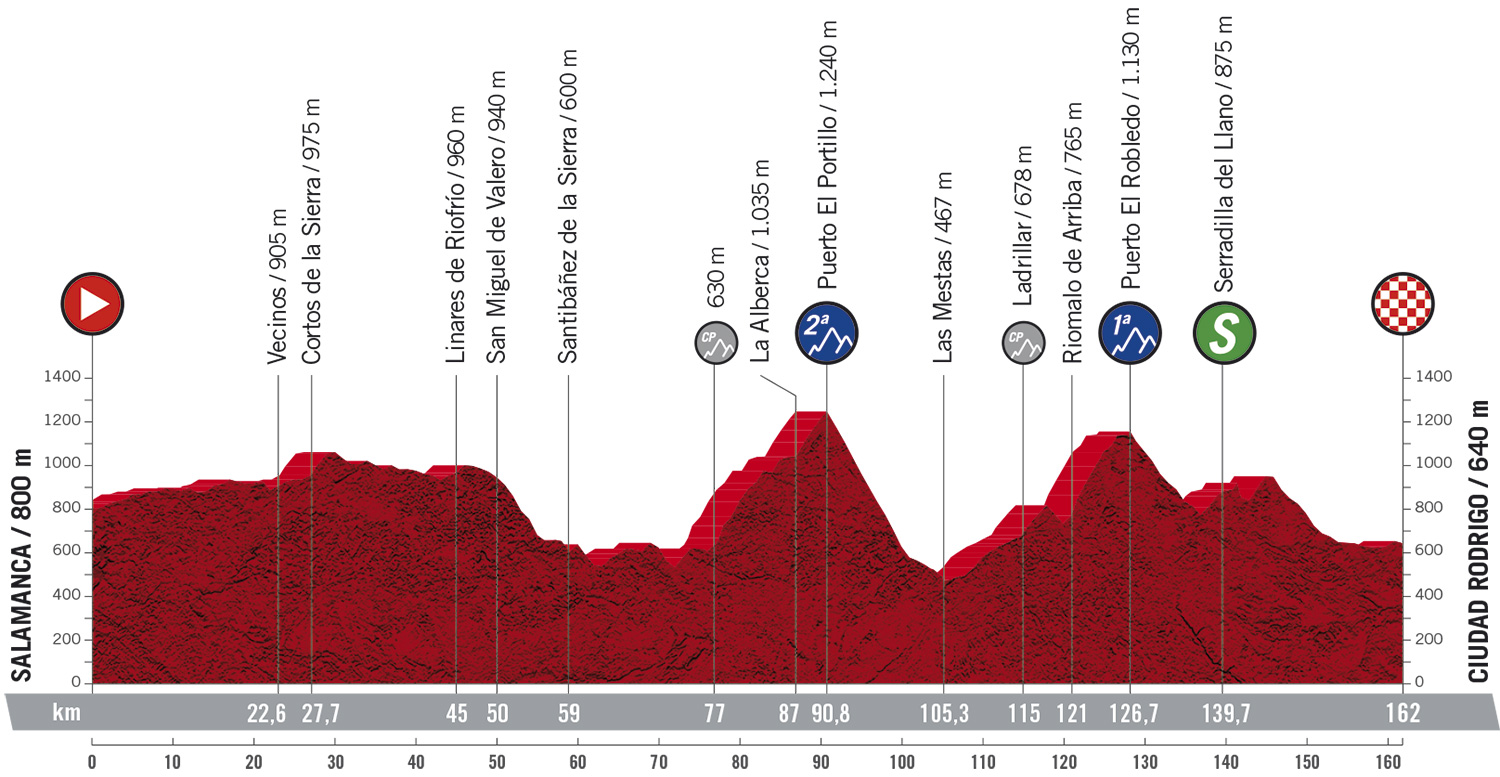
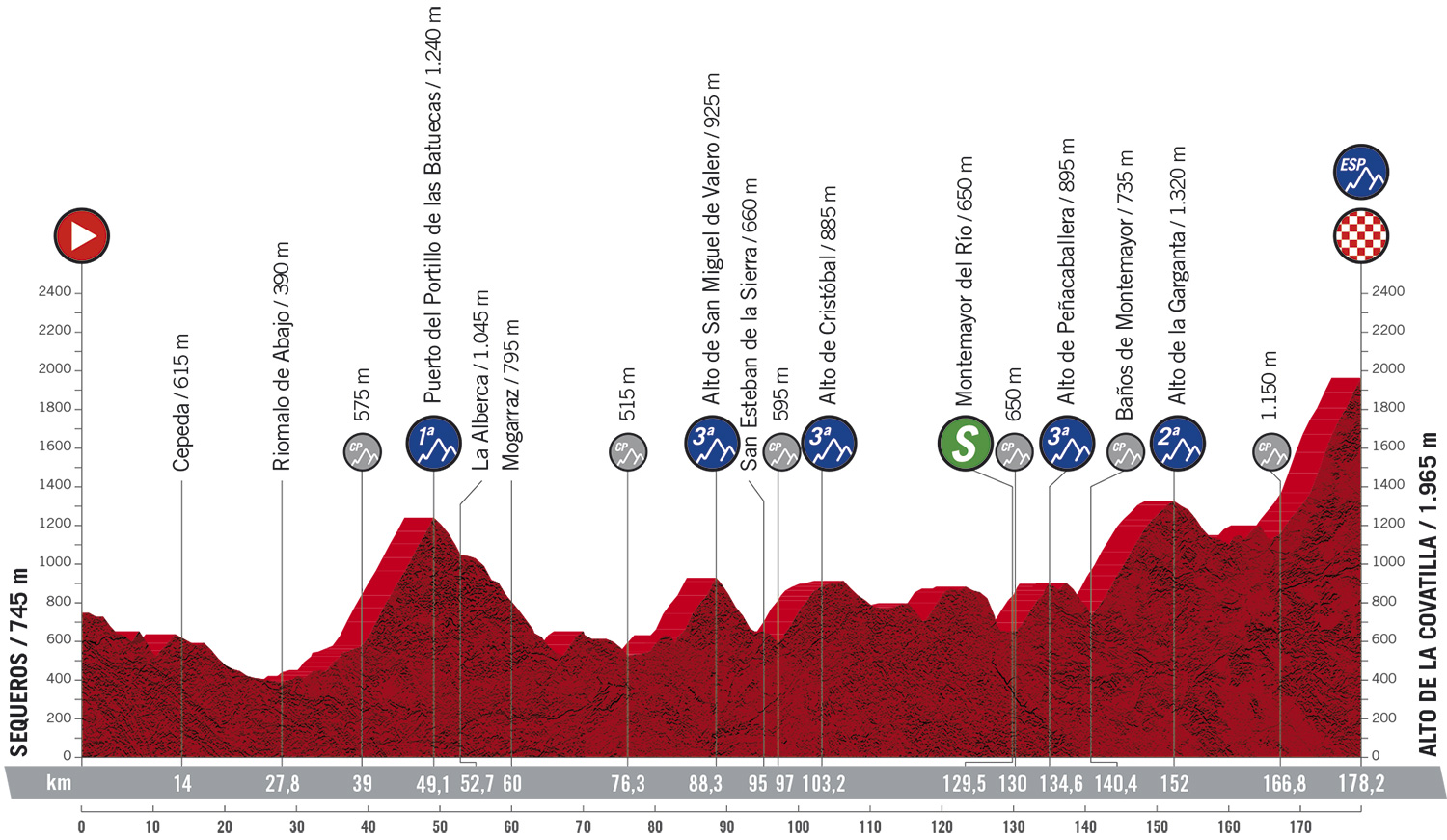
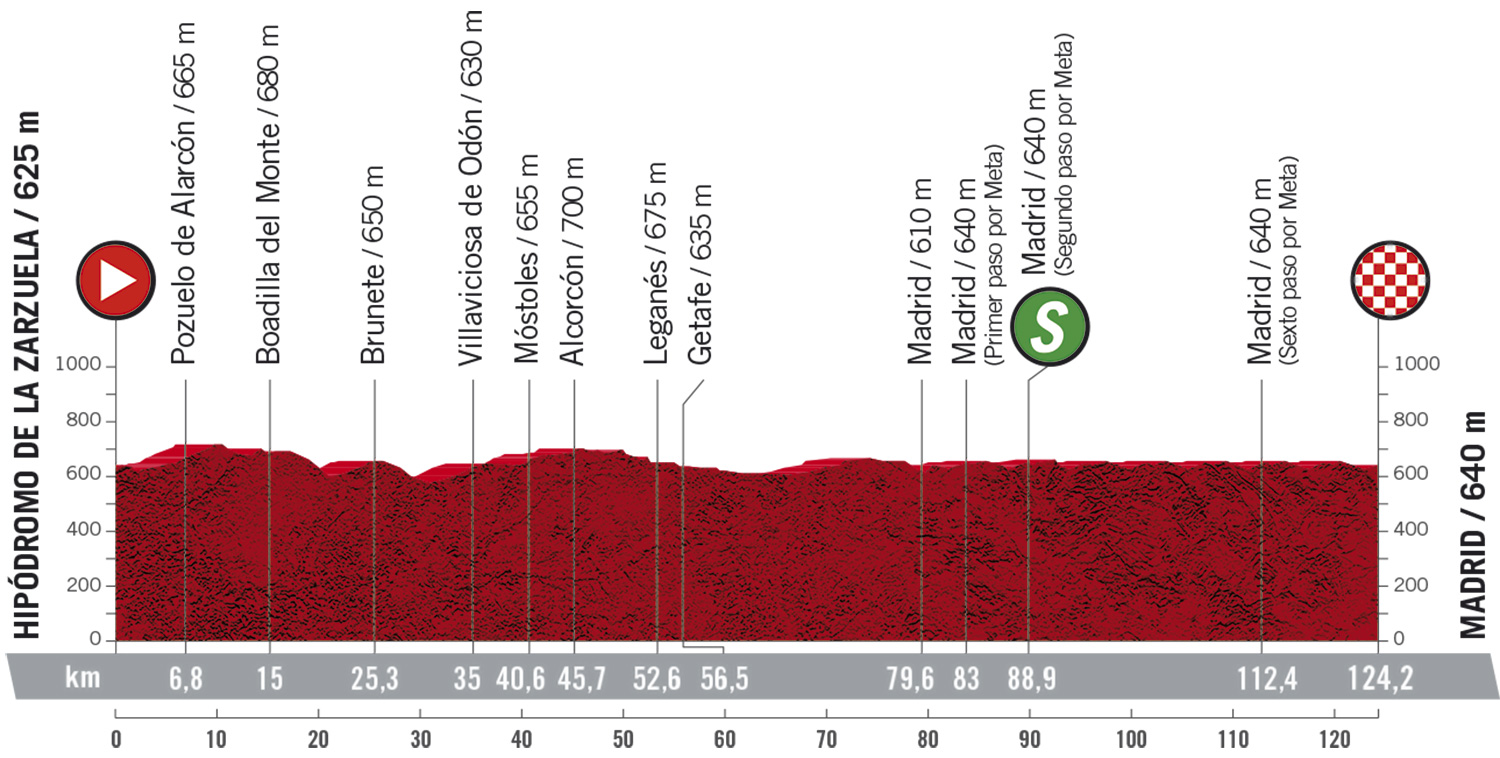
Somewhere in the midst of all of this uncertainty and concern, a bike race is actually happening and looking past the coronavirus issues, it’s a Vuelta with even more interest points than usual. It’s not just the change in dates to the latest in the year of any Grand Tour, ever, and how that will affect the racing: the Vuelta’s route is an exceptionally hard one, too, and the line-up is considerably deeper than it was in 2019.
The 2020 route, stripped of its Netherlands stages, now boasts the toughest first week of any post-war Grand Tour. Two very hilly stages, three summit finishes and a hat-trick of incursions into the high mountains, one of them the hardest - weather permitting - of the entire Vuelta, have been packed into six days.
Crosswinds permitting, the sprinters will only get a look in on stage four across the plains of Aragon in eastern Spain. Other than that, the first week is all about GC and breakaways - or both - and in a race where, like in the Giro, many riders will be racing as if there is no tomorrow, from the moment the starting flag drops, sparks should truly fly.
The climbs kick in from day one when the Vuelta rolls out of the north-easterly frontier town of Irun and, after an undulating trek through the Basque Country, finishes its first stage atop of the Arrate, traditionally the most prestigious finale of the Itzulia in April. Five kilometres long, densely wooded, and averaging about nine per cent in its toughest middle section - and with a finish featuring a kilometre of fast downhill following the actual summit - the Arrate will be immediately preceded by another second category climb and two third category ascents.
Last used in the Vuelta a España in 2012, eight years ago Arrate was the scene of a memorable victory for Alejandro Valverde (Movistar), and the veteran Spaniard, if he has turned around his diminished post-lockdown form, could well be a major favourite that day. But whoever does take la roja on Arrate will have their work cut out in the following mountain stages.
These come in quickfire succession, with a complicated late ascent of the cement covered Aralar on stage 2 and a second summit finish in three days at Laguna Negra de Vinuesa 24 hours later. However, next Sunday’s short but fearsome run through the French Pyrenees, over the first category Portalet and the Hors Categorie Aubisque to finish on the mighty Tourmalet will likely be the most important of all.
Weather permitting - and that is a big question in late October/early November - the leader of the Vuelta after the Tourmalet on October 25 will not simply be keeping the jersey warm for the top contenders. Following the removal of the medium-length opening team time trial, it’ s a virtual given that an out-and-out climber will be in charge of the Vuelta at that point, and one that could prove extremely difficult to dislodge.
An homage to Contador
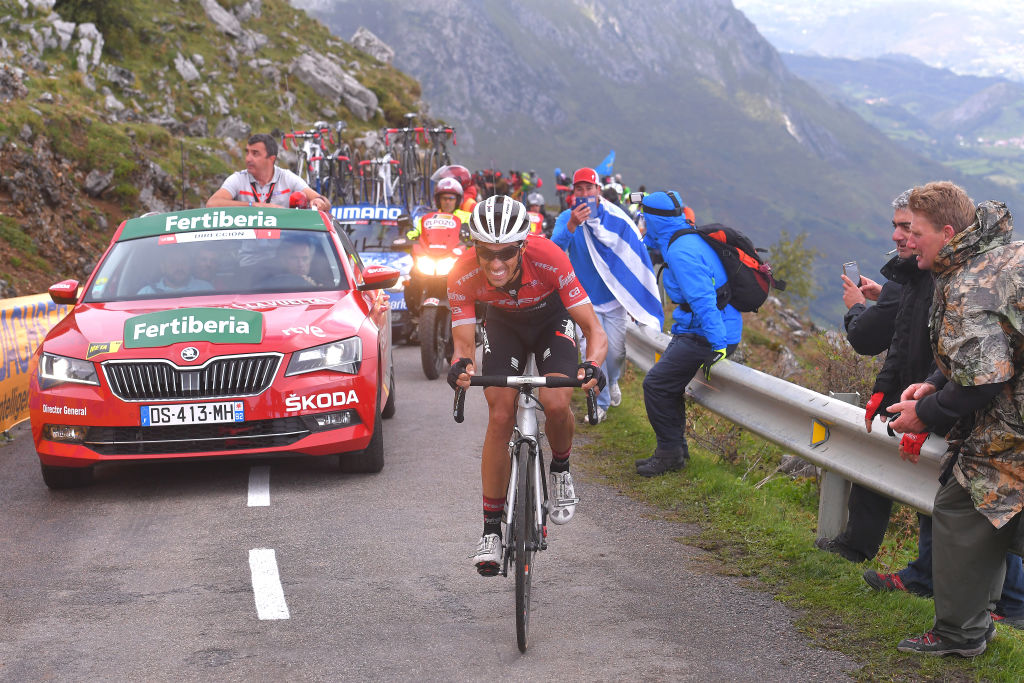
Following the Vuelta’s return to Spain that Monday, the second segment is only slightly less daunting, with a difficult summit finish on stage 11 at the Alto de Moncalvillo, and a double whammy of Asturian mountain stages on the Vuelta’s second weekend.
If much of this year’s Giro is centred on Marco Pantani, then this particular segment of the Vuelta is, intentionally or not, a miniature homage to Alberto Contador. The Alto de Farrapona summit finish on stage 15, was where Alberto Contador sewed up his overall win in the 2014 Vuelta. The stage 16 ascent of Spain’s single most difficult climb, the mighty, Angliru, will bring back memories both of El Pistolero claiming his last ever victory 24 hours before he pulled down the curtain on his career in 2017 and of Contador all but winning the Vuelta for the first time back in 2008, too.
After the Tourmalet and the Asturian weekend of mountains, the third week opens with what is likely to be the Vuelta’s third key stage, a medium-length time trial in the north-westerly region of Galicia.
Like the TT in the Vosges in France this summer, the Ezaro time trial will be held on a mixture of rolling coastal roads then a brutally steep uphill finish. Unlike in the Tour, though, there will be an opportunity to strike back, on the showdown stage on the windswept roads leading to La Covatilla ski station, the race’s eighth and last summit finish, on stage 20.
The contenders
As for the participants, much of the interest, at least initially, will centre on Chris Froome, currently set to co-lead Ineos Grenadiers for the last time in his career at a Grand Tour, alongside Richard Carapaz.
Both riders are in the Vuelta as a result of Ineos rejigging their Tour de France line-up. In August, Froome was ruled to need extra time to get ready to race a Grand Tour while Carapaz, initially down to defend his Giro title, instead found himself heading to Nice to boost Ineos’ mountain firepower in France.
The dire outcome of Ineos Grenadiers Tour and Giro GC bids for Egan Bernal and Geraint Thomas make their participation in the Vuelta something of a last-chance saloon for the British squad concerning 2020. Froome’s performance is of historic interest, too: the Vuelta was where he had his breakthrough race in 2011, winning it outright, and where he took his one Grand Tour ‘double’ in a single year, the Tour and the Vuelta in 2017.
Now the Spanish Grand Tour will see Froome ride for Ineos Grenadiers for one last time, prior to moving on to Israel Start-Up Nation in 2021. As for Carapaz, the Vuelta a España is his chance to make his mark as a GC contender in a team which will remain - even without Froome - jammed with stage racing specialists and allrounders, from Pavel Sivakov and Egan Bernal to Adam Yates and Geraint Thomas.
As happens so often in the Vuelta, there are plenty of other rivals with points to prove, such as defending champion Primož Roglič (Jumbo-Visma), ousted from the top spot in the Tour de France at the last minute by Tadej Pogačar (UAE Team Emirates) and probably the top GC favourite in the Vuelta. Both he and Tom Dumoulin have excellent Grand Tour credentials, but psychologically, vying for the victory in Spain will be crucial to ensure - if nothing else - that Roglič starts the fast-approaching 2021 season on the right foot. And the climbing power of their support team, featuring Sepp Kuss, Robert Gesink and George Bennett, which proved so effective in the Tour, will likely make Jumbo-Visma the team to beat in the Vuelta as well.
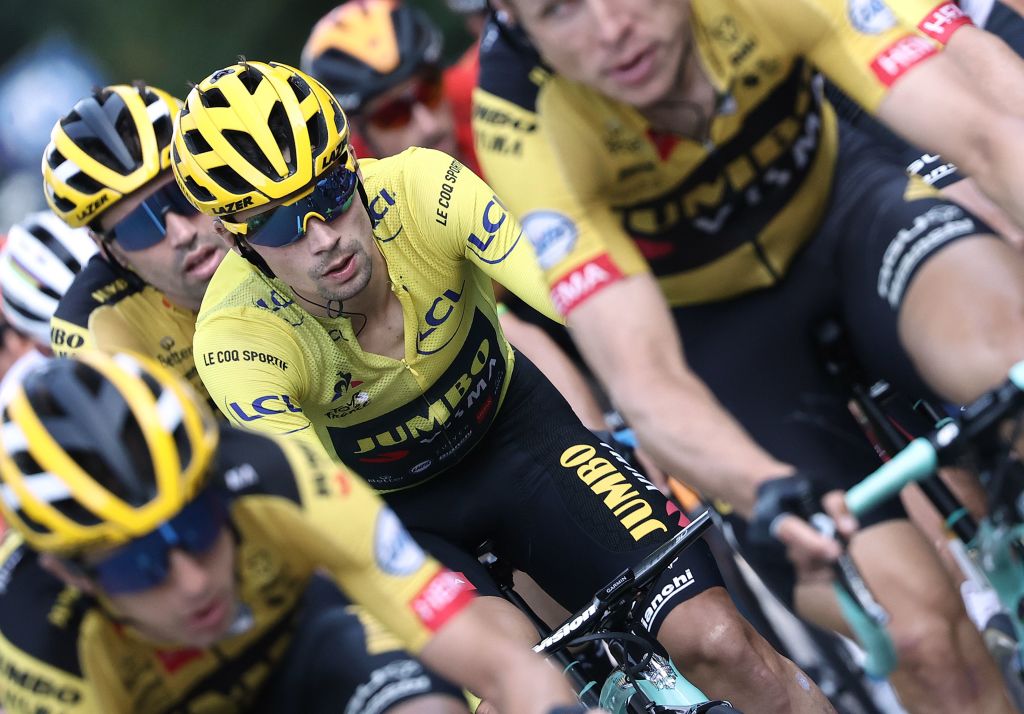
Collectively, though, the team that arguably is most in need of shining is undoubtably Movistar. With just one win to date, a race the Mallorca Challenge back in January, the Spanish squad’s Tour de France was saved only, and in a limited way, by Enric Mas’ fifth place overall and a win in the team classification. At the Giro, which they won in 2019, the Blues are currently once again a shadow of their former selves.
For their home race, Movistar have wheeled out all three of their big guns - veteran Alejandro Valverde, a winner of the Vuelta back in 2009, 2018 runner-up Enric Mas and former Paris-Nice winner Marc Soler. If the pressure is higher than ever on ‘the Blues’ to show their colours, the strength of the rivals could make it an uphill task.
Wout Poels (Bahrain McLaren), Guillaume Martin (Cofidis), Fabio Aru (UAE Team Emirates), Esteban Chaves (Mitchelton-Scott), Dan Martin (Israel Start-Up Nation) and Mike Woods (Team EF Pro Cycling) all form a solid line of outside candidates for stage wins at least and perhaps a crack at GC. Then there is the question of Thibaut Pinot (Groupama-FDJ) and if, as happened in 2013, he will use the Vuelta to revive his GC options following his injury-blighted Tour, or whether he focusses on prestigious mountain top stage wins. Next Sunday, if not before, it will be widely remembered he is the one rider currently in the peloton to have a victory on the Tourmalet’s summit in his palmares, from the 2019 Tour.
Despite there being relatively few bunch sprint opportunities - at most five - they will likely host to some high-calibre finishes, thanks to Pascal Ackermann (Bora-Hansgrohe) and Sam Bennett (Deceuninck-QuickStep) being headline names. The German is making his debut in the Vuelta after a highly successful Giro last year and claiming two stage wins in Tirreno-Adriatico this summer, while Bennett knows the Vuelta well after taking two stages in 2019.
Jasper Phillipsen (UAE Team Emirates) may well give these two top names a run for their money, as was the case when he bested Ackermann in the BinckBank Tour, Magnus Cort (EF Pro Cycling) is a former stage winner, Matteo Moschetti (Trek-Segafredo) already shone in Spain in Mallorca pre-lockdown, and Jakub Marezcko (CCC), a prolific winner of lower-UCI ranked races like the recent Tour of Hungary, can never be ruled out. But if the number of sprint stages is low, breakaway specialists will have plenty of opportunities on a course where the hilly and medium mountain stages has risen sharply in comparison to 2019. Tim Wellens (Lotto-Soudal) for one, should be in his element.)
As has been the case with all 2020’s races, though, the overwhelming climate of uncertainty that currently surrounds all aspects of daily life in Europe, not just sport, will make it difficult to predict what kind of Vuelta we will actually witness. On paper, with at least two very strong GC teams (Ineos Grenadiers and Jumbo-Visma), a plethora of top names on the starting grid, three of whom are former Vuelta winners, and on such a relentlessly difficult course, the sparks should fly.
The stages
Stage 1: Tuesday, October 20 - Irún - Arrate 169.5km
Stage 2: Wednesday, October 21 - Pamplona - Lekunberri 151km
Stage 3: Thursday, October 22 - Lodosa - La Laguna Negra de Vinuesa 163.8km
Stage 4: Friday, October 23 - Garray - Ejea de los Caballeros 190km
Stage 5: Saturday, October 24 - Huesca - Sabiñanigo 185.5km
Stage 6: Sunday, October 25 - Biescas - Col du Tourmalet 135.6 km
Rest day: Monday, October 26
Stage 7: Tuesday, October 27 - Vitoria - Villanueva de Valdegovia: 160.4km
Stage 8: Wednesday, October 28 - Logroño - Alto de Moncalvillo 164.5km
Stage 9: Thursday, October 29 - Castrillo del Val - Aguilar del Campoo 163.6km
Stage 10: Friday, October 30 - Castro Urdiales - Suances 187.4km
Stage 11: Saturday, October 31 - Villaviciosa - Alto de la Farrapona 170.2km
Stage 12: Sunday, November 1 -Pola de Laviana - Alto del Angliru 109.2km
Rest day: Monday, November 2
Stage 13: Tuesday, November 3 - Muros - Ezaro 33.5km (ITT)
Stage 14: Wednesday, November 4 - Lugo - Ourense 205.8km
Stage 15: Thursday, November 5 - Mos -Puebla de Sanabria 230.8 km
Stage 16: Friday, November 6 - Salamanca - Ciudad Rodrigo 177.7km
Stage 17: Saturday, November 7 - Sequeros - Alto de La Covatilla 178km
Stage 18: Sunday, November 8 - Hipodromo de la Zarzuela - Madrid 124.2km
Alasdair Fotheringham has been reporting on cycling since 1991. He has covered every Tour de France since 1992 bar one, as well as numerous other bike races of all shapes and sizes, ranging from the Olympic Games in 2008 to the now sadly defunct Subida a Urkiola hill climb in Spain. As well as working for Cyclingnews, he has also written for The Independent, The Guardian, ProCycling, The Express and Reuters.

